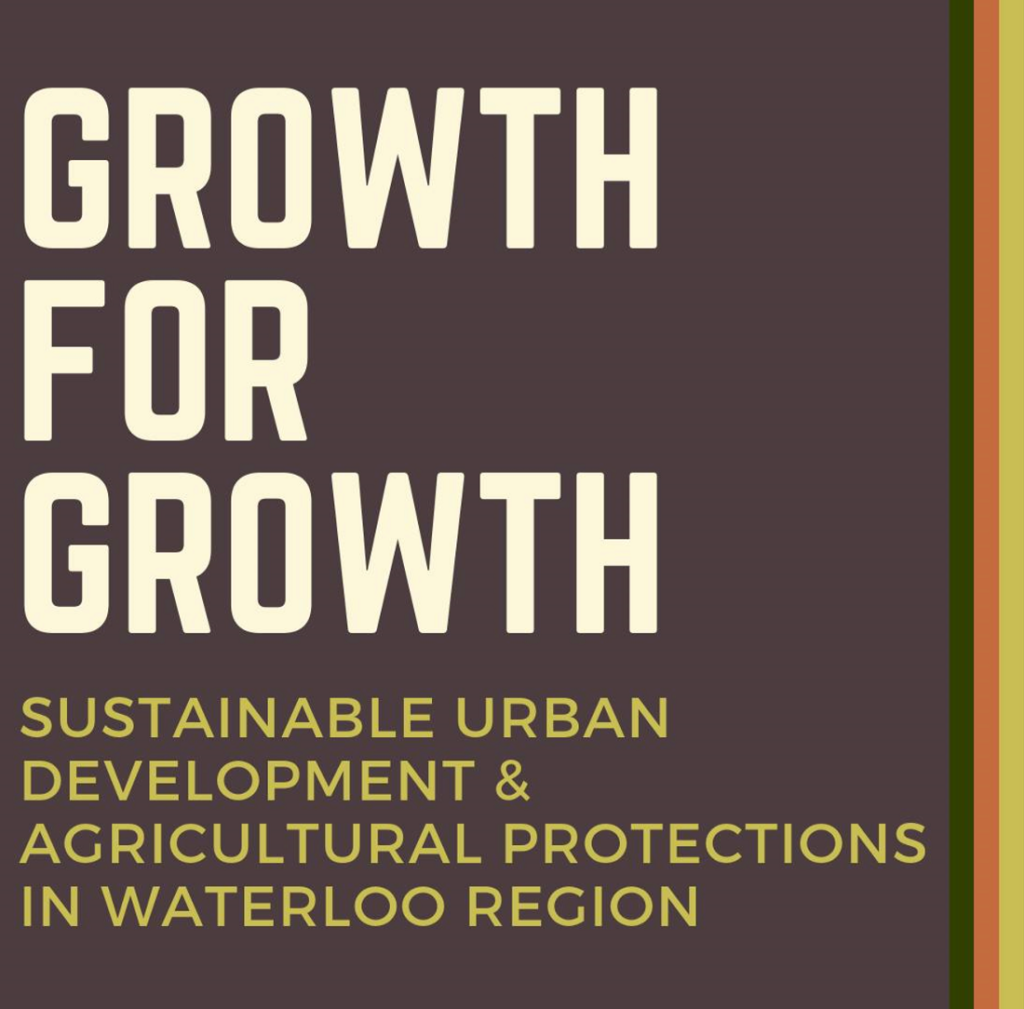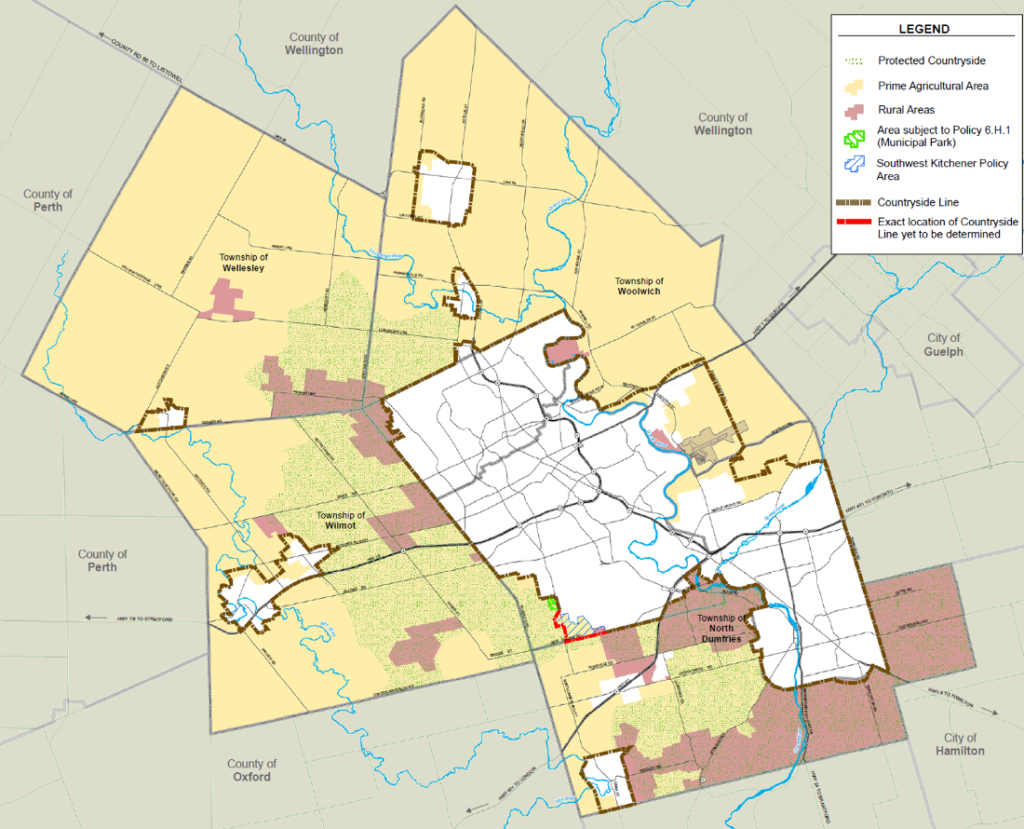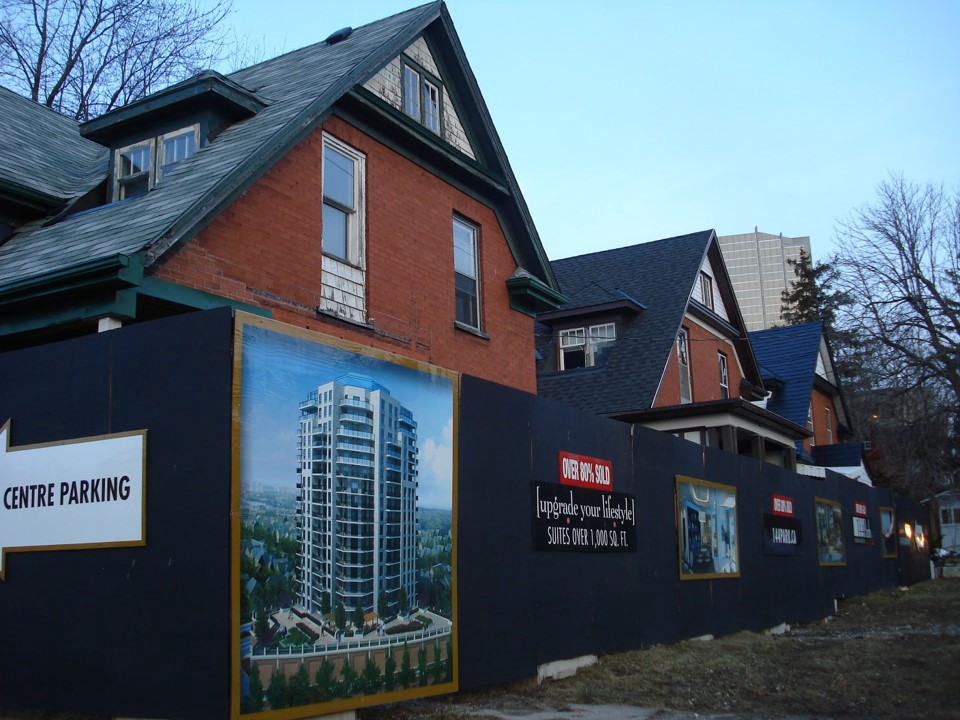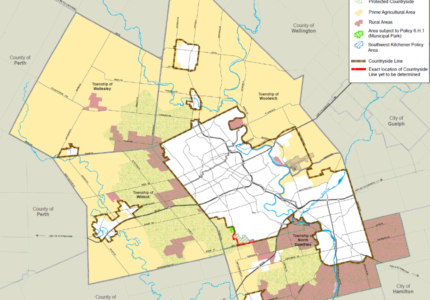6 min read
By Larrissa Jerome

On January 17th, the Food System Roundtable held their second panel discussion in partnership with Open Food Network Canada at the Kitchener Public Library to facilitate a community discussion about the tensions of urban development and creating a more sustainable food system in Waterloo Region.
The rapid growth of our region can be seen all around us through suburban expansion, rising condo buildings, new transit lines, and a growing number of community members attracted to opportunities in our unique tech and innovation industries. Urban development has the ability to strengthen our local economy by offering better-established infrastructure, resources and revenue generation for businesses and community members. However, it’s also imperative to recognize the vulnerabilities that development creates and the unequal distribution of those vulnerabilities among our community.
The sustainability of local food systems that support rural communities and provide affordable, accessible, healthy food produced in environmentally sustainable ways, depends on our active reduction of vulnerabilities presented by urban development. The Growth for Growth: Sustainable Urban Development and Agricultural Protections in Waterloo Region panel discussion included three diverse local experts who were invited to present their perspectives and knowledge of the long-time tension of urban development in the region, and more broadly in Ontario.
First to present was Kate Daley, who shared experiences from her PhD research on the Region of Waterloo’s growth management and transit policies. Her presentation centred around the politics of countryside protection in Waterloo Region. Kate helped us to better understand the region’s land use planning by explaining the difference between protected countryside (i.e. agricultural land that is protected from urban development) versus the countryside line (i.e. development staging for when and where we want to grow). The protected countryside is a “landscape level protection” intended to connect environmental sensitive landscapes. Kate explained: “The idea is that you can’t just keep the environmentally sensitive areas; you need whole connected pieces for ecosystems to function”. This is the idea behind the provincial Greenbelt plan, but the Greenbelt doesn’t apply in Waterloo Region and as a result, the Region created their own Regional Official Plan that is approved by the province and followed via municipal policies.
Planning for smart growth in our area means making more efficient use of urban areas and transit. In our community, Kate finds that smart growth has a strong focus and strong political support for protection of rural areas and agriculture. Unlike other communities, the countryside in Waterloo Region is recognized as part of our identity by both regional and urban Councillors.

Our next speaker, Sam Nabi, shared his insights as a director of the local non-profit Hold the Line Waterloo Region, which hosts an annual festival to celebrate our protected countryside and foster rural and urban allies who to stand up for Waterloo Region’s Countryside Line. Sam gave us a look at the history of “holding the line” on development in the region, and in particular the 1980s with Fred Martin and the “Stop the City” campaign. Centered around food and creating community for new immigrants, Fred and other students at the University of Waterloo advocated for better rural-urban relations that were threatened by development. They hosted “Barn Fest” at the farm where they lived on the edge of town to raise awareness and they petitioned the city to allow the land to continue to be agricultural. Unfortunately, they were unsuccessful and the line was extended to where it is today.
Sam described how tensions between the region and developers continue into more recent history with appeals made to the Regional Official Plan in 2013 by developers that wanted to open up more land. This time, however, there wasn’t a citizen-backed movement to support agricultural protection and stand alongside the political support from regional and city Councillors. “This is the spirit in which Hold the Line got started; we realized there’s going to continue to be pressures on this countryside line… We can’t just rely on having good policy in place and that being enough. We also need people to first be aware that these tools exist and to do something about it if they get threatened”, Sam explained.
Pressures to our agricultural protections can come from beyond our region as well, as shown with Bill 66 proposed by the Ontario government at the end of 2018. This new bill would have introduced exemptions for certain types of development applications, so that when they’re approved by the province, the development won’t need to comply with requirements around clean water, growth plans, or public notice. Sam, Hold the Line, and other organizations quickly formed a strategy and were successful in getting public commitments from all of the municipal and regional councils in the area to pass opposition to Bill 66, which will no longer be passed into law.

The last speaker, Dr. Markus Moos, is a registered City Planner and professor in the School of Planning at the University of Waterloo. His presentation looked more closely at the city, it’s evolution of growth, why it evolved as it did, and the benefits and costs of boundaries like the countryside line. To begin, Markus drew caution to how we evaluate and celebrate the history of a place, acknowledging the history of colonization in our area and the Indigenous people that have and continue to be displaced from the evolution of our cities. He describes Waterloo region as “dispersed” from a history of manufacturing times when our economy was intertwined with our urban form. As a result, our cities were developed primarily to accommodate automobiles. As our economy has changed, so has our city structure and there have been increasing development pressures on the city centers. Markus explained that centralization has benefits for reducing our environmental impact, protecting our agricultural land, and lessening the fiscal impacts of providing services to urban sprawl (i.e. hydro, etc.). “In order to protect our agricultural lands, we need to build our cities in a different way to make them more compact… If you want to grow centrally and more compact, you have to offer some transportation alternatives other than the car”, said Moos..
However, despite the creation of more housing units and investments in new transit (i.e. ION LRT), most of these developments are more expensive for citizens and investments are being celebrated more than the actual achievement of better public transit and walkability. Affordability has become one of the greatest tensions with this development as most of our low-income community members are losing access to transit lines and housing. Markus suggested that we need to hold our elected officials accountable to ensure that this development is a benefit for everyone in our community and encourages boundaries that reduce our impacts on climate change.
During the discussion period, many comments and questions returned to the need to continue these conversations about urban growth and agricultural protections between community members, with our regional, municipal, provincial and federal governments, and with developers. We need to play an active role in protecting our countryside and ensuring sustainable growth that is good for our entire community by engaging with policies and practices that affect our urban structure. As Kate concluded, “write honest to goodness letters!” It will take citizen-based movements supported and acknowledged by our Councillors to achieve sustainable food systems and cities.
Stay tuned to the Food System Roundtable Facebook Page to join our next conversation!
Have an idea for a public forum or want to volunteer with the Food System Roundtable? Send an email to [email protected] to talk with us.

